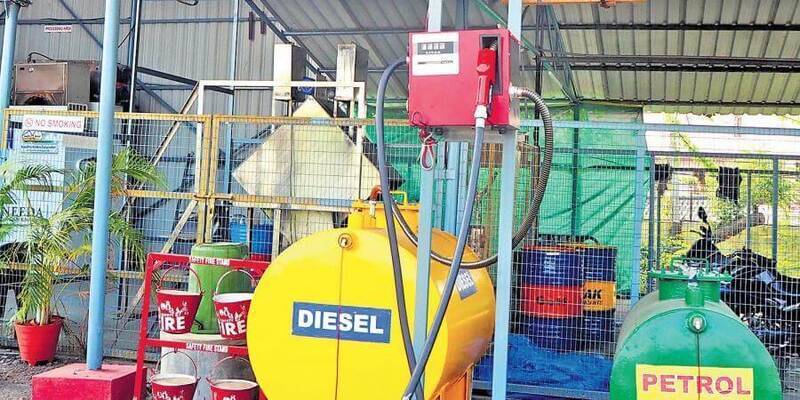
$50bn SDG-targeted investment proposals at SDG Investment Fair
Over 100 SDG-aligned projects with a total investment scope of $ 50 billion have been presented during the ...

Guntur Municipal Corporation’s (GMC) project of converting plastic waste into synthetic fuel is yielding results as the Corporation is running at least 100 of its vehicles including dumpers, tractors, mini compactors and autos on synthetic fuel.
The plant started production three months ago and in the last one month, 8,562 kg plastic waste was used to generate an approximately 5,362 litres of diesel, 886 litres of petrol and 3,108 kg of char. Out of 2,000 litres of fuel required by the Corporation for its vehicles on a daily basis, the plant is providing 600 litres of fuel.
The fuel is synthesised from industrial plastic waste which include containers used in the factories to water bottles thrown on the roads.
The GMC started this project following the Solid Waste Management Rules, 2016, which envisages effective plastic waste management. With a capital of Rs 1.9 crore, in which 25 per cent was contributed by the Swachh Andhra Corporation, the GMC established the plant after trial runs from September 29.
Utilising the NEEDA Green Energy machinery, the fuel synthesised in the plant is being used by the Corporation vehicles. Explaining the process of generating fuel from waste, the plant’s Assistant Engineer (AE) Pavan told The New Indian Express that the process involves five steps.
The first involves regulation of temperature and programming the entire process. The control panel regulates 500 degree Celsius temperature required in the procedure. This panel includes 18 different types of programmes and it is selected according to the quality of the plastic waste. A total of 50 KW power is required for one cycle.
In the second stage, a crane is used to load the powdered plastic waste into the flak of the kiln in which it gets processed at a temperature of 500 degree Celsius, which is gradually increased by the control panel. At least 350 kg powdered waste is utilised in one cycle.
This powdered plastic waste is sourced from industries in Hyderabad and more recently they are being procured from Machilipatnam, Pavan said.
The third step involves transferring of the powdered plastic into the condensers where the vapour undergoes polymerisation under reverse chain reaction and transfers from the hot condenser to the cool condenser. “During this process, methane is released as a by-product. This methane is utilised for power generation which in turn is utilised as input,’’ the AE explained.
In the fourth step, based on the differences in the densities of the fuel, it is collected separately into diesel and petrol collecting tanks automatically and filtered in separate apparatus for diesel and petrol respectively in the last step.
“The end product char is released along with the fuel. The char obtained is activated carbon which is being utilised as manure for plants in municipal parks,’’ he said.
The entire process takes 18 hours and for each cycle, the output would be 250 litres of diesel and kerosene along with 25 to 30 litres of petrol and 100 to 120 kg char. One cycle is completed in a day including the time taken for cooling the fuel.
No effluents will be released in the process and there will not be any air or water pollution and the whole process requires minimal manpower.
“All the mandatory pollution checks were done and the consent for operation is also issued by the Andhra Pradesh Pollution Control Board (APPCB). The hourly reports are sent to APPCB and Central Pollution Control Board (CPCB) daily.
Explaining the efficiency of the fuel, Pavan said the diesel has to be utilised in 1:1 ratio. For one litre of synthetic fuel, one litre of fuel is utilised. And all the vehicles have obtained clearance in pollution check-ups.
However, the bottleneck of this project is the shredding of plastic waste as PCB has to provide the shredded waste in Engineering, procurement and construction (EPC) mode. The synthetic fuel plant of GMC was nominated for SKOCH Award-2020.
Over 100 SDG-aligned projects with a total investment scope of $ 50 billion have been presented during the ...
Global electric car sales are set to hit around 17 million by the end of ...
Ericsson Canada marked the Earth Day by joining the Environment and Climate Change Canada’s (ECCC) Net-Zero ...


اترك تعليقا